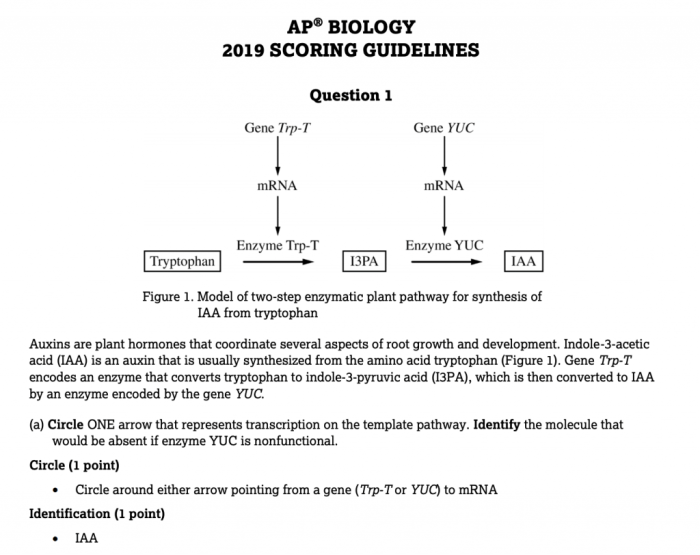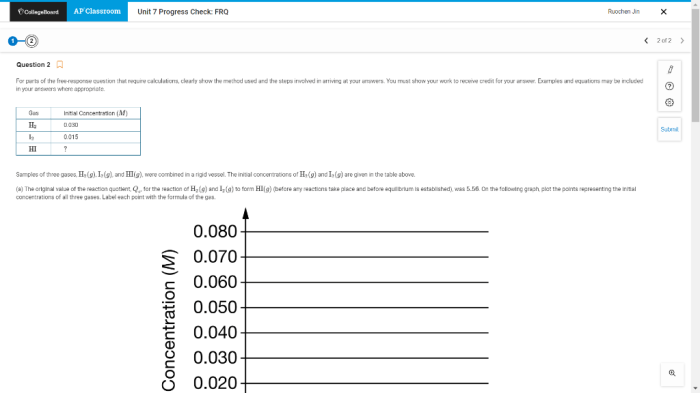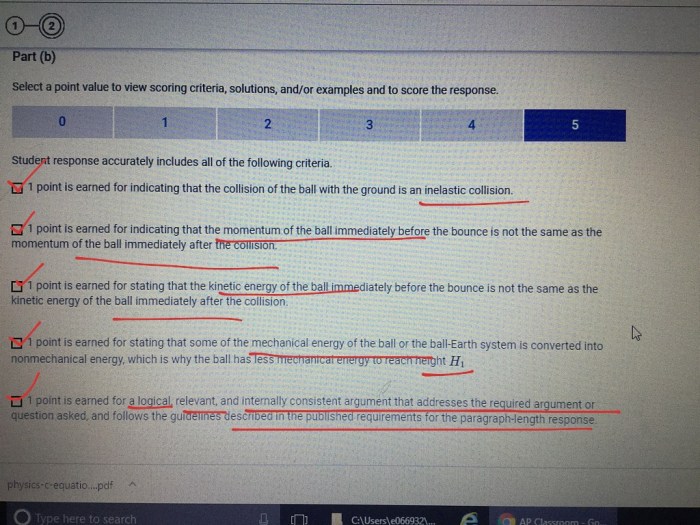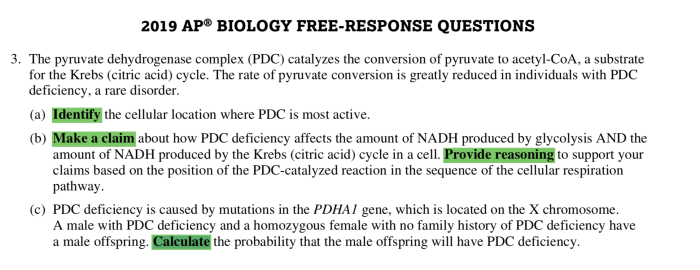Unit 8 progress check frq ap bio – Embarking on a comprehensive exploration of Unit 8’s Progress Check FRQ for AP Biology, this discourse unveils the intricate tapestry of biological concepts that underpin the Advanced Placement curriculum. With meticulous attention to detail and an authoritative voice, we delve into the core principles that govern cellular processes, genetic expression, evolutionary mechanisms, ecological interactions, and the scientific method.
Through a lucid examination of the cell cycle, mitosis, meiosis, gene regulation, natural selection, ecosystem dynamics, and the scientific process, this analysis equips students with a profound understanding of the fundamental principles that shape the living world. Prepare to engage in a thought-provoking journey that illuminates the complexities of AP Biology and empowers you to excel in your academic endeavors.
Unit 8 FRQ Overview: Unit 8 Progress Check Frq Ap Bio
The Free Response Question (FRQ) section of the AP Biology exam requires students to demonstrate their understanding of key biological concepts and their ability to apply that knowledge to novel situations. The FRQ section consists of six questions, each worth 10 points.
To approach the FRQ effectively, students should:
- Read the question carefully and identify the key concepts being tested.
- Organize their thoughts and plan their response before writing.
- Use specific evidence and examples to support their claims.
- Write clearly and concisely, using correct grammar and spelling.
Cell Cycle and Cell Division

The cell cycle is the process by which cells grow and divide. It consists of four stages: G1, S, G2, and M. During G1, the cell grows and prepares for DNA replication. During S, the cell’s DNA is replicated. During G2, the cell checks for DNA damage and prepares for mitosis.
During M, the cell divides into two daughter cells.
Mitosis, Unit 8 progress check frq ap bio
Mitosis is the process by which a cell divides into two identical daughter cells. It is used for growth and repair.
Meiosis
Meiosis is the process by which a cell divides into four haploid daughter cells. It is used for sexual reproduction.
| Characteristic | Mitosis | Meiosis |
|---|---|---|
| Number of daughter cells | 2 | 4 |
| Ploidy of daughter cells | Diploid (2n) | Haploid (n) |
| Number of cell divisions | 1 | 2 |
| Purpose | Growth and repair | Sexual reproduction |
Gene Expression

Gene expression is the process by which the information in a gene is used to produce a protein. It consists of two steps: transcription and translation.
Transcription
Transcription is the process by which the DNA in a gene is copied into a messenger RNA (mRNA) molecule. mRNA is then transported out of the nucleus into the cytoplasm.
Translation
Translation is the process by which the mRNA molecule is used to produce a protein. Translation occurs on ribosomes in the cytoplasm.
Regulation of Gene Expression
Gene expression can be regulated at a number of different points, including transcription, translation, and protein degradation.
Natural Selection and Evolution

Natural selection is the process by which organisms with traits that are better suited to their environment are more likely to survive and reproduce. Over time, this can lead to the evolution of new species.
Principles of Natural Selection
- Variation exists within a population.
- Some variations are inherited.
- Individuals with favorable variations are more likely to survive and reproduce.
- Over time, the frequency of favorable variations increases in the population.
Role of Genetic Variation
Genetic variation is the raw material for natural selection. It can arise from mutations, gene flow, genetic recombination, and other processes.
Examples of Natural Selection
Natural selection has shaped the diversity of life on Earth. Some examples of natural selection include the evolution of antibiotic resistance in bacteria, the evolution of camouflage in animals, and the evolution of the human brain.
Ecology
Ecology is the study of the interactions between organisms and their environment. It is a complex and interdisciplinary field that draws on a variety of scientific disciplines, including biology, chemistry, physics, and mathematics.
Ecosystems
An ecosystem is a community of organisms and their physical environment. Ecosystems can be small, such as a pond, or large, such as a rainforest.
Interactions Between Organisms
Organisms in an ecosystem interact with each other in a variety of ways. These interactions can be positive, negative, or neutral.
Human Impact on Ecosystems
Human activities can have a significant impact on ecosystems. These impacts can be positive, negative, or both.
Science as a Process

Science is a process of inquiry that uses observation, experimentation, and hypothesis testing to build a body of knowledge about the natural world.
Scientific Method
The scientific method is a step-by-step process that scientists use to investigate the natural world.
Role of Observation, Experimentation, and Hypothesis Testing
Observation, experimentation, and hypothesis testing are three key components of the scientific method. Observation is the process of gathering information about the natural world. Experimentation is the process of testing a hypothesis by manipulating variables and observing the results. Hypothesis testing is the process of evaluating a hypothesis based on the results of an experiment.
Examples of Science in Action
Science has played a vital role in our understanding of the natural world. Some examples of science in action include the development of vaccines, the discovery of antibiotics, and the development of new technologies.
Commonly Asked Questions
What is the purpose of the Unit 8 Progress Check FRQ?
The Unit 8 Progress Check FRQ is designed to assess students’ understanding of the key concepts covered in Unit 8 of the AP Biology curriculum.
What types of questions can I expect on the Unit 8 Progress Check FRQ?
The Unit 8 Progress Check FRQ typically includes a variety of question types, including multiple choice, short answer, and essay questions.
How can I prepare for the Unit 8 Progress Check FRQ?
To prepare for the Unit 8 Progress Check FRQ, students should thoroughly review the material covered in Unit 8, practice answering different types of questions, and familiarize themselves with the exam format.